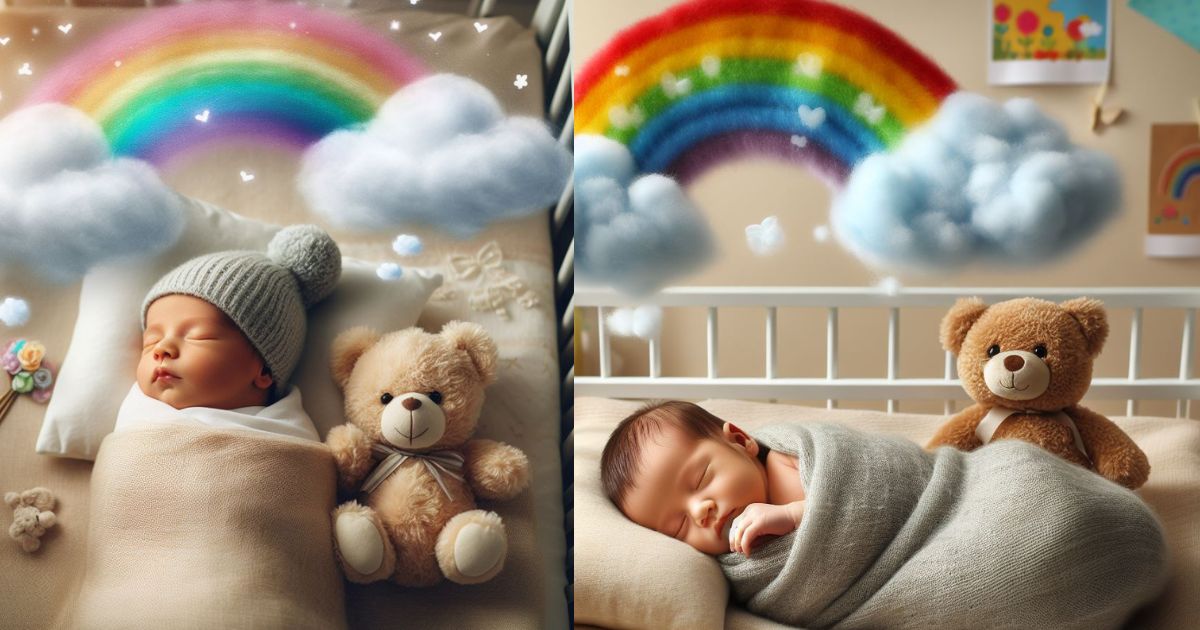Do Babies Dream? Exploring the Mystery of Infant Sleep
Have you ever watched your baby sleeping peacefully, their tiny face contorting in silent expressions, and wondered what goes on behind those closed eyelids? One of the great mysteries of parenthood is whether babies dream.
Unlike adults who can recount fantastical dreamscapes or wake up in a cold sweat from nightmares, babies lack the language skills and cognitive development to tell us about their inner world. But what science does tell us about their sleep cycles offers some fascinating clues.

The Science of Dreams
Before we delve into baby sleep, let’s set the stage by understanding adult dreams. Dreams are vivid stories or images our minds create during sleep, particularly during the REM (Rapid Eye Movement) stage. REM sleep is characterized by increased brain activity while the body remains paralyzed. This is when most dreaming occurs, and it’s thought to play a role in memory consolidation, emotional processing, and creativity.
Do Babies Dream Like Us?
The question of whether babies dream remains a subject of debate among scientists. Unlike adults, babies’ brains are still under significant development. They cannot form complex memories or the language skills to describe dreams upon waking. However, this doesn’t necessarily mean they don’t experience any internal world during sleep.
Inside the Sleep of a Baby
Newborns spend 50% of their sleep time in REM sleep, compared to 20% in adults. This high percentage suggests that some brain activity might occur during this state. However, it’s unlikely these experiences resemble the elaborate dreamscapes adults encounter. Instead, some researchers believe these early REM cycles might be related to processing new experiences and consolidating the massive amount of information babies take in during their waking hours.
When Do Babies Start Dreaming?
Studies on dream recall in young children offer some insight. While children under five rarely describe dreams, research suggests that dream recall starts developing around preschool age. Children’s dream narratives tend to be simpler than adults’ at first, often reflecting recent events or familiar experiences. This suggests that actual dreaming, with complex storylines and emotions, might only emerge later in childhood as the brain matures.
Conclusion – The Enigmatic World of Baby Sleep
While science can’t definitively answer whether babies dream-like adults, the high REM sleep percentage hints at some form of internal experience during sleep. These early “dreams” are likely far simpler, focused on processing new information and forming essential memories. As a parent, witnessing your baby’s peaceful (or sometimes not-so-peaceful) sleep remains a beautiful and fascinating mystery.